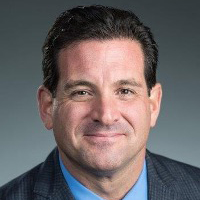As a Certified Public Accountant (CPA), staying current on the latest tax laws and regulations is essential to provide the best service for your clients. However, the stressors of tax season can cause even the most diligent CPA to neglect their own accounting practices at the expense of their future golden years.
Here are some valuable tips to help you navigate the tax season for both your clients and yourself.
Deduct Your Home Office Expenses
Whether you work solely from home or split your time between an office and home, you may be able to deduct certain expenses related to a home office from your tax obligation. When determining eligibility for the deduction, be sure to document all expenses associated with running your business, such as supplies, utilities, rent/mortgage, depreciation of furnishing and equipment, and even insurance premiums!
Keep in mind that certain limitations depend on each CPA’s unique situation.
Deduct Travel-Related Business Expenses
If you travel for business purposes longer than one day outside of your tax home, you may be eligible to deduct a large part of your expenses. The IRS includes hotel stays, meals, airline and train tickets, car rentals, tolls, and even airport parking fees as tax-deductible expenses, providing that you have the proof – so keep your records! While traveling around town to meet with clients, you can deduct the costs of driving and maintaining your vehicle – to an extent.
By following standard and accepted protocol when deducting travel-related business expenses as a CPA firm, you can ensure accuracy, compliance with IRS regulations, and also significant savings on filing taxes.
Maximize Your Retirement Contributions.
The above deductions may seem evident to CPAs, who always strive for the most significant possible deduction across the board. But what a CPA may not realize is that these deductions can have a substantial impact on their retirement planning strategies.
Retirement accounts are a great way to save money on taxes – both now and in the future. They allow for tax-advantaged growth through
Tax-deferred (deductible) contributions (pay taxes in retirement)
or
Post-tax contributions (tax-free growth!).
In conjunction with a financial advisor, a CPA can create the most tax-efficient strategy utilizing tax deductions and strategic contributions to maintain the lowest possible tax bracket now and in retirement.
And in 2023, retirement contribution limits are up!
401(K) annual contribution limits in 2023 are $22,500, up from the $20,500 limit in 2022. IRA contributions are up to $6,500, though taxpayers 50 and older can contribute an extra $7,500. Even those relatively small contribution amounts can lead to enormous savings once compounding works its magic over the years. But still, these contributions are small peanuts compared to what’s possible for solo entrepreneurs…
The Solo 401(K)
Many CPAs operate their own private practice with no other employees and therefore make use of the Solo 401(K). The Solo gives excellent retirement savings capabilities, and 2023 is a boon for CPAs ‘flying solo,’ so to speak. The total contribution limit for 2023 is $66,000 or $73,500 for those aged 50 and older. Making this possible is the ability to contribute simultaneously as both an employee and an employer.
Pro-Tip: While Solo 401(K)s don’t allow for employees, they do allow for spouses to work and plug into a Solo.
For traditional and Roth IRAs, you can put away $6,500 if you’re under age 50 or $7,500 if you’re 50 or older. Contributions must be made by applicable deadlines, so review the options for yourself and your clients as soon as possible.
In Conclusion
In conclusion, as a CPA, staying current on the latest tax laws and regulations is crucial to not only provide the best service for clients but also to keep one’s own affairs in order. By deducting home office and travel-related business expenses, a CPA can max out retirement contributions and put even more money away into various tax-advantaged savings accounts that will prove fruitful later in life. It’s also important to review options for yourself and clients early and keep precise records to maximize deductions. Working with a financial advisor can give you a better understanding of your lifelong tax situation, especially regarding retirement planning.








